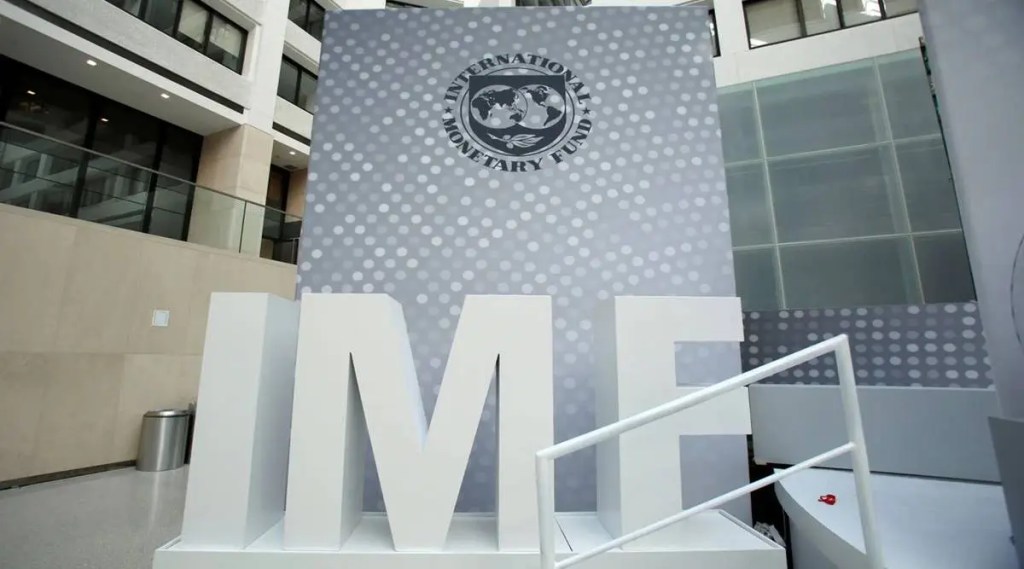Ahead of the G20 Finance Ministers and Central Bank Governors meeting, International Monetary Fund (IMF) managing director Kristalina Georgieva on Wednesday said bringing inflation back to target remains imperative for global policymakers. “To get there, policymakers need to stay the course on monetary tightening. Aligning fiscal and monetary policies will help. Clear communication of these policy goals is vital to avoid a sudden repricing in financial markets,” Georgieva said.
While the global tightening cycle is necessary to ensure price stability, policymakers must be mindful of adverse spillovers to emerging and developing economies — including through a stronger US dollar and capital outflows, she cautioned.
In a blog post titled ‘Policy Priorities for the G20: One Earth, One Family, One Future’ (motto of India’s G20 Presidency in 2023), Georgieva also urged policymakers to support vulnerable people and economies, protect the planet and harness digital progress for all.
India will contribute over 15% of the global growth in 2022-2023 and it is uniquely placed to bring countries together amid rising geopolitical tensions, she said. India’s forex reserves stood at $566 billion, down by $40.4 billion since March 31, 2022, largely due to stronger dollar and foreign portfolio investor outflows.
“But beyond its role as a global growth engine, India (G20 Presidency for 2023) is uniquely positioned to bring countries together,” she said.
The meeting of top global economies assumes importance in the backdrop of rising geopolitical tensions due to Russia-Ukraine war. India has good political and business relations with both Russia and its global rivals US and European countries.
G20 finance ministers and central bank governors will discuss a coordinated approach to deal with inflationary pressures, boosting global growth, debt vulnerabilities of developing countries and sustainable financing for urban infrastructure at their meeting on February 24-25 in Bengaluru.
IMF’s January 2023 World Economic Outlook Update projected that global growth would fall to 2.9% in 2023 but rise to 3.1% in 2024. The 2023 forecast is 0.2 percentage points higher than predicted in October 2022 but below the historical average of 3.8%. About 80% of global growth this year and next would come from emerging and developing economies.
While IMF has forecast 6.1% growth for India in FY24, the Reserve Bank of India (RBI) has estimated it to slow to 6.4% next year from 7% in FY23. But, in its latest monthly bulletin, RBI said it is possible for the country to raise the growth to 7% next fiscal if the Union Budget proposals are efficiently implemented.
Rising interest rates and the war in Ukraine continue to weigh on economic activity in most countries including India. Global inflation is expected to fall from 8.8% in 2022 to 6.6% in 2023 and 4.3% in 2024, still above pre-pandemic (2017–19) levels of about 3.5%, IMF said.
“While financial conditions have improved since the G20 last met, providing some modest relief, we have seen how higher borrowing costs exacerbate the vulnerability of economies with heavy external debt burdens,” Georgieva said.
To accelerate debt restructuring efforts, the IMF, World Bank, and India’s G20 presidency are convening a new Global Sovereign Debt Roundtable. “This week in Bengaluru, we will meet in-person for the first time—and pave the way for creditors, both public and private, and debtor countries to work together, assess the existing shortcomings and best ways to tackle them,” she said.
Amid food and energy shortages for their population due to dwindling forex reserves and debt repayment obligations, India’s neighbours Sri Lanka, Bangladesh and Pakistan have sought a bailout from the IMF over the past year to tide over their economic hardships.
